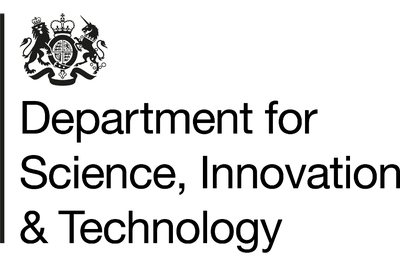Funding Source: Department for Business, Energy and Industrial Strategy (BEIS) Core and Core +.
Dr Tatsuma Padoan - Italian
The Lucky Gods of Tokyo: Religious and Spatial Politics of a Contemporary Urban Pilgrimage
NF130960 School of Oriental and African Studies £85,538.75
The Lucky Gods of Tokyo: Religious and Spatial Politics of a Contemporary Urban Pilgrimage. This study intends to analyse the relationship between religious and spatial politics in contemporary Japan, through an investigation of how Tokyo urban space is used in specific routes of pilgrimage that emerge from the interaction between Buddhist and Shinto institutions. Urban studies tend to ignore the role of pilgrimage in shaping contemporary city life, especially in the rich Asian traditions. By focusing on the extremely popular – but little studied – pilgrimage of the Seven Gods of Fortune, and on some of its specific settings, this project will try to fill this gap, and to explain how this religious practice: (1) reconfigures urban space and institutional boundaries, within a changing geography of religious interests, economical activities and quests for local identity, and (2) leads us to reconsider the category of social, as a process produced by networks of human and divine actors.
Dr Terri Ochiagha - Spanish
E.H.Duckworth, the Making of Nigeria Magazine and the Nationalist Press, 1933-53
NF130637 University of Sussex £90,844.57
This project studies the life of E.H. Duckworth, a colonial inspector of education, and his editorship of Nigeria Magazine in the years 1933-53. The magazine funded under the aegis of the Education Department disseminated cultural and developmental knowledge about Nigeria in the country and the West. Duckworth sided with the grievances of the colonized and forged links with the nationalist press. Consequently, Nigeria Magazine was a locus of constant negotiation and renegotiation. In its pages, British cultural hegemony became increasingly porous and contested. By examining the correlation between Duckworth’s nonnormative life choices and his production of counter-hegemonic knowledge, it is possible to illuminate previously neglected issues in studies of colonial whiteness in Nigeria: the Education Department’s politics of knowledge production and dissemination, its subsumed use of coercive control, and indigenous collaborative resistance in the generation of colonial knowledge.
Dr Kurt Gron - American
Understanding Early Animal Husbandry in Southern Scandinavia: A Comparative Isotopic Approach
NF130853 University of Durham £95,518.82
The transition to agriculture in southern Scandinavia is one of the last in Europe, occurring around 4000 B.C. The reasons for this transition are still unclear, and its mechanisms uncertain. This project takes a comparative approach to this transition, using data from an earlier transition of known character and the more understood preceding Mesolithic to understand the reality of the first Neolithic Scandinavian animal husbandry. Stable isotopic ratio analyses of subfossil bones and teeth are applied to archaeological materials from the Ertebølle, Funnel Beaker, and Linearbandkeramik cultures of northern Europe in order to better understand land use, landscape modification, seasonality of practice, homogeneity, and other aspects of animal husbandry. These data will then be used to pinpoint and assess the mechanisms of one of the last neolithisation processes in northern Europe.
Dr Golan Gur - Israeli
Utopia and Memory in the Musical Culture of the German Democratic Republic
NF130340 University of Cambridge £92,050.27
This project focusses on the attempt of former East German composers and theorists to translate the teachings of Marxism-Leninism into musical terms. This attempt began in Germany during the years of the Weimar Republic, but the events of World War II and the Holocaust created new conditions for its undertaking. Moving back to Germany after 1945, Hanns Eisler, Ernst Hermann Meyer, and Georg Knepler, to name just three prominent GDR musicians and musical thinkers, played a central role in defining aesthetic guidelines and aspects of musical education under the communist regime. Exploring a relatively neglected chapter in the history of modern music, I will propose that it is an oversimplification to identify ‘socialist realism’ solely with the propagandistic and oppressive aspects of Soviet art. I also explore the validity and significance of Marxist and Marxist-Leninist aesthetics to present-day discussions of the relationship between music and society.
Dr Anthony Fisher - Australian
The Metaphysics of Samuel Alexander
NF130221 University of Manchester £72,435.26
Samuel Alexander (1859-1938) was one of the leading figures of British philosophy of the early 20th century and was part of the “new realism” movement instigated by G.E. Moore and Russell. In reaction to the idealism of T.H. Green, F.H. Bradley, and Bosanquet, Alexander constructed a realist metaphysical system that was presented in Space, Time and Deity (1920). His work influenced C.D. Broad, John Laird, R.W. Sellars, and most importantly A.N. Whitehead and Scottish-born Australian philosopher John Anderson (1893-1962). This project explores Alexander’s metaphysics, his theory of the categories, and the epistemology that underpins his method of metaphysical inquiry. The project will encompass not only the historical context of Alexander’s work but also draw new insights and connections with current problems in metaphysics. The project also seeks to improve our understanding of the historical significance of Alexander and his influence on Anderson and Australian metaphysics.
Dr Jukka-Pekka Heikkila - Finnish
Latent forms of entrepreneurship in East Asia
NF130387 Anglia Ruskin University £99,000.00
This project is a first attempt to provide insight into the latent forms of entrepreneurship in North Korea where in order to survive, citizens are thought to engage in forms of mundane micro-entrepreneurship. By adopting institutional and sensemaking approaches, this study aims to explore how North Koreans construct the cultural images and actions of entrepreneurship. The novel empirical work inside North Korea, based on privileged access, will use a multi-method approach comprising of text analysis, field experiments and interviews amongst local students who will become future business leaders. This will enable exploration of latent cultures of entrepreneurship in a 'closed society' where entrepreneurial activity is legally forbidden. The proposed research is an important and unique opportunity to study latent attitudes to business and entrepreneurship, which will give us potential indicators of the shape of the future North Korean economy, should it become a more open economy.
Dr Mari Miyamoto - Japanese
Democracy and religion in contemporary Bhutan
NF130282 School of Oriental and African Studies £97,500.00
In 2008, by decree of the ruling monarch, Bhutan was transformed from absolute monarchy into parliamentary democracy. Bhutan is the only Tibetan Buddhist country in the world and has presented itself on the world stage as an environmentally friendly country with stringent environmental policies and controls. While the government’s conservation policies have not necessarily been accepted by citizens in the way in which they were intended, there was prior to 2008 little political means for rural Bhutanese to resist these policies. However, democratisation is creating a new public space for political action and new ways in which to alter and challenge central government decision-making. This study attempts to see how citizens and the state together create and engage with the public sphere and how this process intersects with religious activities and beliefs, as well as various epistemological positions towards the natural environment.
Dr Clara Fischer - Irish
The Politics of Shame: Containment, Gender and Embodiment
NF130274 London School of Economics & Political Science £81,091.75
This project develops the notion of the politics of shame by exploring states’ practices of incarcerating unwanted populations and the role shame plays therein. It analyses the emotion of shame, and its connection to political power as exercised through incarceration and containment. The research further problematises the politics of shame by exploring the relationship between gender, the disciplined body, and shame. The theoretical analysis of this project is grounded in the empirical, with the experiences of women incarcerated in Magdalene Laundries in Ireland forming a case study to contextualise many of the complexities entailed by a politics of shame. Having established the philosophical and empirical bases for a politics of shame, the research then goes on to assess the further implications of such a politics for citizenship and political decision-making. Given the exclusion of shamed populations from decision-making bodies, it envisages an alternative to the politics of shame.
Dr Sandipto Dasgupta - Indian
Can Judges Transform Society? Nature and Scope of Judicial Activism in India
NF130674 King's College London £96,109.34
The project investigates the increasing and unprecedented involvement of the Indian Supreme Court in socioeconomic policymaking, which makes it a paradigmatic case for similar trends in the developing world. This project provides a distinct analytical framework for studying this phenomenon, using both legal studies and social science approaches. The project has two parts. The first studies the process (the questions: how and why) of judicial intervention in policy, and the second the outcome, potentials, and limits of it. The thesis of the project, briefly stated, is this: Judicial activism marks a significant jurisprudential innovation in constitutional law whereby courts become the forum for contesting and adjudicating the directions of socio-economic transformation in the country. Secondly, a project led by the judiciary for social change leads to a shift in the nature of the social developmental agenda itself, illustrating the structural constraints of changing society through law.
Dr Anna Llaurado - Spanish
A developmental model of written text quality in three different languages
NF130596 Institute of Education, University of London £83,825.00
Writing provides people with a powerful learning tool basic for knowledge organization and personal development. What makes a text a good text, however, remains an elusive question worth further researching. Assessing written composition requires taking into account the different dimensions of the text and the ways in which different cognitive, linguistic and transcription skills impact on these dimensions. A better understanding is needed of the online compositional processes to obtain real time models of writing. The goal of this project is to explain what aspects of the text best explain the text overall quality at different stages and across three different orthographies: English, Catalan and Spanish. The contribution of oral skills and online compositional processes to quality text generation will be assessed. This project has relevant psycholinguistic, linguistic and educational implications.
Dr Diana Cucos - Moldovan
Diplomatic Protection: A Distinctive Source of Human Rights Protection
NF130494 University of Essex £84,360.00
This research project will reassess the law on diplomatic protection (DP) of citizens in a post-codification context. It will explore the potential for DP to be used as a distinctive mechanism for the protection of the human rights of individuals. The undoubted development of standards of universal human rights protection is accompanied by a world system which is state-orientated. In the absence of a universal human rights treaty which provides real remedies for individuals, DP remains the most effective remedy for the promotion of human rights. This remedy, being half legal and half diplomatic, is one which will, however, continue to be the subject of controversy. The research will be undertaken through a combination of normative analysis of primary and secondary legal materials and interviews with Prof. J. Dugard (Univ.of Leiden and the then-Special Rapporteur on Diplomatic Protection), diplomatic/consular personnel, prominent human rights lawyers and Foreign Office representatives.

